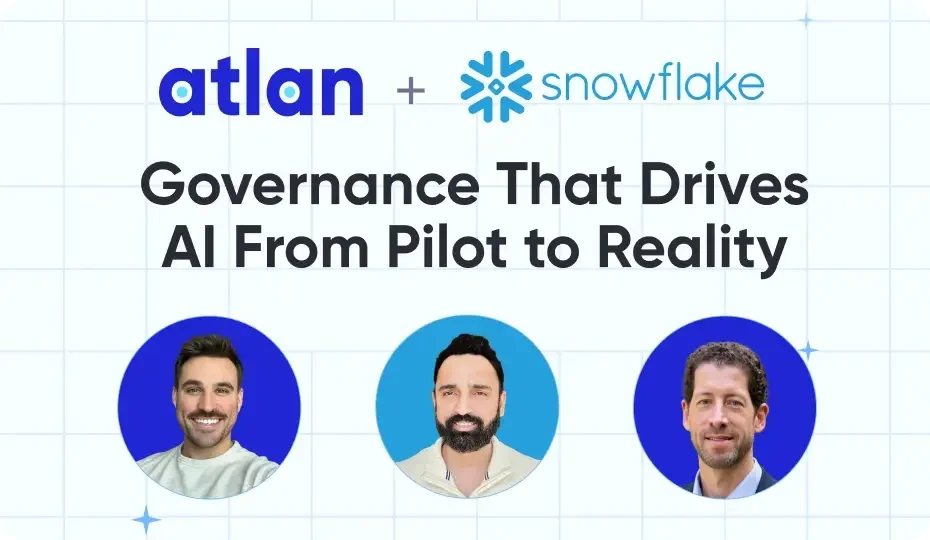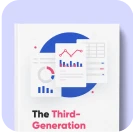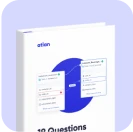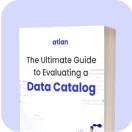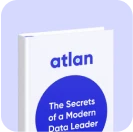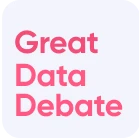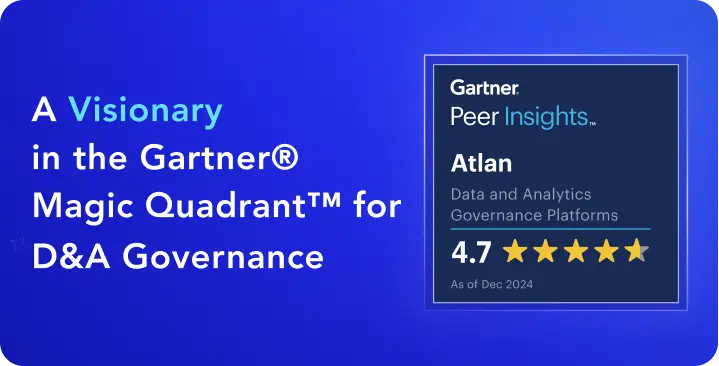What is Alation? The Legacy Data Catalog Explained

Share this article
If you’re on the hunt for a data catalog, you’ve likely heard of Alation but might not know much about it.
What is Alation? #
Alation began as a data catalog where users could use natural language queries to discover data sets throughout the company. Over time, that solution grew to add support for other features, including support for data governance controls to manage authorized access to data and analytics.
Modern data problems require modern solutions - Try Atlan, the data catalog of choice for forward-looking data teams! 👉 Book your demo today
The founders of Alation were former employees at Apple and Oracle who felt the need for these solutions firsthand in their own companies. In response, they formed Alation in 2012.
The data catalog has evolved a lot since 2012. But the basic concept remains the same: a central clearing house of what data your company has, where it lives, and what purpose it serves.
A data catalog inventories data from your storage layer and beyond, connecting with systems such as Snowflake, Amazon Redshift, Databricks, and traditional databases like MySQL and Microsoft SQL Server. It imports any associated metadata and also supports crowd-sourcing tags and classifications from users throughout the company.
Modern data catalogs go beyond this basic functionality. They also include support for tracking data lineage, which tracks the origins and change history of data, as well as tools for collaboration, granular data governance, and an open API architecture for ease of integration.
Table of contents #
- What is Alation?
- What Alation currently offers
- Challenges with Alation
- Atlan: The Alation Alternative
- Related reads
What Alation currently offers #
Since its initial inception, Alation has evolved its core offering and also added additional products:
- Alation Data Catalog: The flagship product continues to support its basic function of cataloging a company’s data and searching it using natural language queries. It also incorporates automated checks to detect and fix data anomalies before they negatively impact business decision-making. Alation also supports various tools to enable data stewards and governance teams to manage compliance and access.
- Alation Connectors: Software components that enable integration of data from data warehouses, data lakes, and data lakehouses.
- Alation Data Governance App: A separate UI for creating, deploying, and enforcing data management policies - e.g., restricting access to Personally Identifiable Information (PII) such as addresses or payment details.
Challenges with Alation: It has not evolved with the needs of modern businesses #
Some companies end up choosing Alation based on brand alone. But it’s been over a decade since it entered the market. And according to some customers, it’s showing its age.
In reviews on one prominent site, customers point out several challenges with Alation:
- The Alation Data Catalog is hard to implement and integrate into your existing IT infrastructure. There is no support for DIY setup, meaning that implementation can require weeks of engineering effort.
- Several customers also say that the data connectors are hard to use and often require direct support from Alation. This further delays how quickly a team can get up and running with their data catalog.
- Newer features of the modern data catalog, such as data lineage, are, in one customer’s words, “not ready for prime time.” Reports say the user interface is clunky and doesn’t provide good support for tracking lineage connections across data sources.
- Pricing is a concern, and it’s not just about base licensing costs. Given the nature of the solution as discussed above and how it affects the implementation, training, and maintenance costs – the total cost of ownership can pile up to be prohibitive.
Users also report additional issues with on-premises installations. The on-premises installation isn’t connected directly to Alation’s cloud services. This means that every release and security patch requires a time-consuming deployment process. Customers also report that retrieving and transmitting log files for in-depth debugging of critical issues is extremely difficult.
These reports paint a picture of a product that’s struggling to keep up with the vision of the modern data catalog.
Atlan: The Alation Alternative #
Modern data catalogs need to provide more than just a search engine for data. That’s not an easy feat. Still, these days, companies have come to expect their data catalog to support:
- Metadata Lake that enables the consolidation of metadata in a single repository, providing truly democratized access to data across the organization. Proactively gathering and updating metadata manually as well as automatically through the use of open API standards.
- Embedded collaboration so that users can work together on data sets inside of existing productivity tools like Slack and Jira
- Granular governance controls that enable the democratization of data while also guaranteeing adherence to your company’s compliance measures
- An open API architecture so that everyone in the company can easily integrate the data catalog into their existing data stacks
- Active metadata capabilities, in order to leverage the open API architecture to ferry metadata back and forth across the data stack in a two-way stream. It’s about utilizing metadata in the best way possible and not having it sit in a silo.
- Dedicated customer support is critical because data catalogs are only good if they see widespread adoption amongst potential users. Companies need reassurance that their data catalog provider will do everything it can to ensure success.
What is Alation: Related reads #
- Alation Alternative - 5 Reasons Why Atlan is The Overwhelming Choice Amongst The World’s Best Data Teams
- Alation vs Atlan: What Do Experts and Users Say?
- Alation Pricing : How to Calculate Total Cost of Ownership
Share this article

